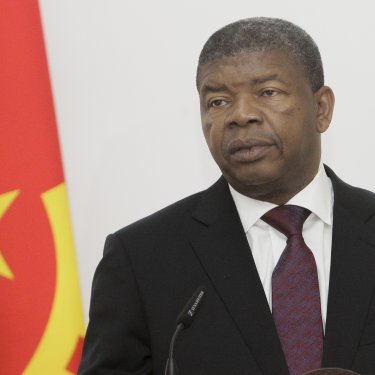RSF asks Angola president to “go to the next level”

Since taking office exactly a year ago, on 26 September 2017, Angola’s President Joao Lourenço has kept only part of his promise to defend and promote press freedom. Access to state-held information has increased, but Reporters Without Borders (RSF) is concerned about the failure to remove the legislative restraints on the media and journalists.
For the first time in nearly 40 years, Angola’s journalists were able to put direct questions to their president when Lourenço gave a press conference on 8 January and, in a bid to emphasize the difference with his authoritarian predecessor, Eduardo dos Santos, he told his audience of around 100 journalists that “we defend freedom of expression and freedom of the press” and added that “we don’t just defend [these freedoms], we promote them too.”
Since then, access to state-held information has indeed improved and state media now sometimes report opposition views. “There are now opinion pieces by opposition politicians in Jornal de Angola, the big state-owned daily,” said Candido Teixeira, the secretary-general of the Angolan Union of Journalists.
The justice system also sent an encouraging signal in June when it acquitted the journalist Rafael Marques of “offending a sovereign institution” by covering a former attorney general’s alleged involvement in an illegal land purchase. In a statement at the time, RSF hailed the court’s ruling that Marques had exercised his “obligation to inform with complete objectivity.”
But the “promotion” of press freedom has yet to be translated into revision of a series of media laws that the previous government enacted in 2017. The new government had nonetheless promised to open a debate “as soon as possible” about decriminalizing media offences. As things stand, defamation or “insulting” a person by means of published word or image is punishable by six months in prison. The social communication ministry also has the power to oversee the editorial policies of media outlets and to impose sanctions on them.
“The improvement in access to state-held information and the justice system’s recognition of the key role that journalists play in society represent significant progress for Angola,” said Arnaud Froger, the head of RSF’s Africa desk. “The government must now quickly move to the next level. Only a complete overhaul of the repressive media legislation will enable Angola’s journalists and media to exercise their right to inform without fear of judicial retaliation.”
Finally, the media landscape will not be able to develop and diversify without a reduction in the exorbitant media start-up charges. Under the broadcast law, an outlay of 735,000 euros is needed to create a national radio station and more than 2.3 million euros are needed to create a TV channel.
Angola is ranked 121st out of 180 countries in RSF’s 2018 World Press Freedom Index.


